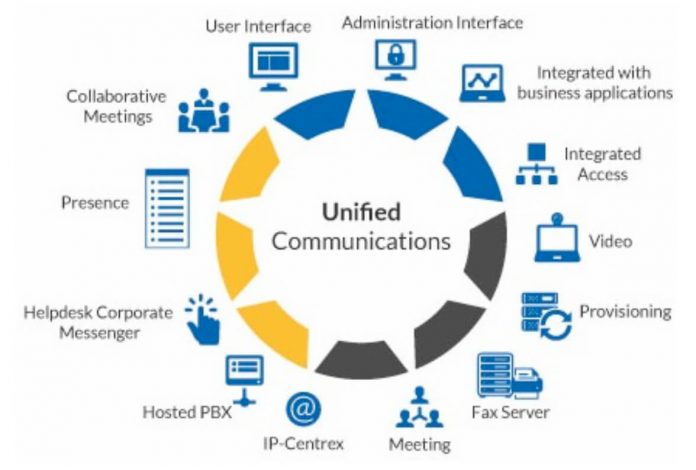With the surge of advanced communications systems, it can be overwhelming for the firms to choose the most appropriate solution. Successful companies resort to a more streamlined technology to improve the workforce’s productivity and mobility and control its capital expenditures. So, how do all of these fit in a single interface? Is it a worthwhile investment? These are typical questions every firm asks before rolling out unified communications solutions and measuring employee productivity tracking.
The aggregate of communications technology through a single platform that manages the entire end-to-end, information, and connectivity solutions, is unified communications. Through this single interface, users can send and receive data without going through separate systems.
Who provides the services
Companies that specialise in voice communications services use unified communications solutions to facilitate communication beyond the use of a telephone service. Although voice service is still essential, these solutions provide a medium that combines all communication tools, including the voice function.
Common functions
Some of the typical functions of unified communications are the ability to take calls from the office lines using the computer or mobile phones for a centralised experience regardless of the device the employee is using. Also, instant messaging, cloud faxing, and voice-to-email features are all part of every firm’s daily operations, which unified communications solutions can integrate into one platform.
Benefits
Improve flexibility
There is no need to purchase and keep a separate telephone system when the unified communications rollout. The unified platform will serve as the single host to connect to the rest of the departments. The integration brings efficiency within the team and faster call transfers in the office.
Increase mobility
The centralised communication system allows staff to work anytime and anywhere. Voice calls will no longer limit employees’ mobility and can continue fieldwork using the nifty communication tools available at their disposal. Hence, employees have higher productivity rates every day.
Stable connectivity
Establishing a reliable connection with clientele is crucial to any business. This solution enables firms to form stable connections with their clients through secure help desk applications, more organised CRMs, and ERP systems. Moreover, managers will have complete access to sales and automation mediums to increase the team’s efficiency.
More affordable solutions
Through unified communications solutions, firms no longer have to deal with several contractors to maintain every communications technology they use. Since this is already an integrated system, they only have to deal with one provider for repairs and maintenance. Even the upgrading and replacements will be under one contractor.
Scalability
The system doesn’t have any capacity issues. There is room for expansion without spending on additional equipment or maintenance. Because the cloud hosts the firm’s phone system, any problems with the equipment and the telephone service will no longer be the company’s responsibility.
Technology continually evolves, and today’s work needs to be more agile and not rely on a particular table, phone, or desktop computer. Employees can share their skills and chase their opportunities all over the world with just the appropriate device and a stable cloud connection.
Consequently, businesses need to look for a way to reach users who refuse to stay connected via wires and one location. The outcome is the surge of amazing communication tools created for all areas in the business. However, unified communications solutions make it a lot easier and less complex for the company.


